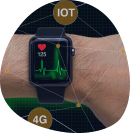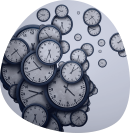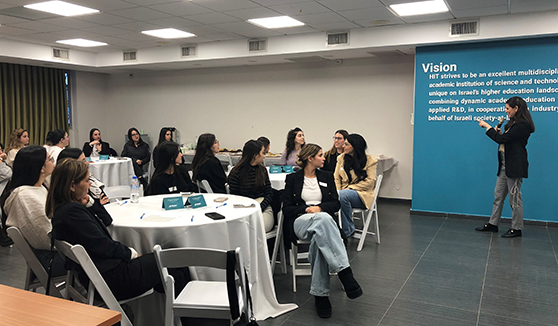More:
Entrepreneurship and Innovation
In collaboration with Future HIT – The Center for Innovation and Entrepreneurship, we are excited to offer various courses introducing the dynamic worlds of technological innovation and business startup – critical fields for creative development in the third millennium. In a fast-paced world, we strongly promote the development of applicable skills, highlighting the crucial role of innovation in science, technology, design, and other fields.
Learning in this cluster is done at the interface between theory and application, bridging between the classroom and the industry. Our courses reflect the various fields in which we envision strong ties between academic studies and the execution of creative ideas. In the courses offered students learn entrepreneurial thinking and processes of innovation, putting them into practice from the incipient idea, through creative R&D, and up to the technological and business implementation of a final product.
We value your ideas. Come grow with us!
Fall Semester 2019 courses:





Cyberspace: The Dark Side of Technology
Instructor: Dr. Harel Menashri
Course number: 82016
Method of instruction: lecture
Weekly hours: 2
Credits: 2
Prerequisites: none
The development of cyberspace has transformed our lives and turned familiar international borders blurry. Everyday life, governments, economies and infrastructures have become increasingly dependent on cyberspace. The internet forms the main infrastructure for national and international trade. Electronic databases and social media facilitate social interaction on an unprecedented scale. At the same time, cyberspace also serves surveillance and aggression on behalf of states, traders and criminal organizations.
This course introduces the world of cyberspace, its terminology, risks and information security. Course topics include: main concepts of cyberspace, its uses and abuses, legitimate and illegitimate actors, critical infrastructures, weapons in cyberspace, different policies between countries, ethics in cyberspace, and security.
Wearables: Facing Industry Challenges
Instructors: Dr. Nava Shaked | Mr. Eli Jacobson
Course number: 82013
Method of instruction: lectures & practical project
Weekly hours: 4
Credits: 4
Prerequisites: Third year or above
The course will be taught with a multidisciplinary outlook and will review the world of wearables, with an emphasis on the development of solutions and products that combine design with computational and engineering technologies. We will discuss mobility aspects in terms of user interfaces, on the one hand, and technology on the other, introducing products and capabilities at the forefront of technology.
The course will focus on a number of topics essential to the field:
- Product development cycle - usability, design, technology, computing and optimization requirements
- Introduction to the entrepreneurial world of wearables
- Creative thinking on synergy between the fields of engineering and design
- Project management - presentation, practical work in heterogenic groups, etc.
The course will provide students with tools to define, construct and present a solution of wearable. Work will be done in teams composed of students from various faculties, while emphasizing the presentation of a solution (practical or theoretical) and its technological and usability components.
Biological Clocks
Instructor: Dr. Hadas Lewy
Course number: 82024
Method of instruction: lecture
Weekly hours: 2
Credits: 2
Prerequisites: none
Biological clocks are well known pacemakers in living organisms. The clock activity as well as the interaction between the various clocks in the body affect the functionality of physiological, cognitive and mental systems, and as a result, affect all aspects of daily life: sleep, learning ability, shift work performance, cognitive performance and mental condition. Over the years, methods for diagnosis and treatment of clinical conditions that use biological clock function have been developed - drug therapy, light therapy, and behavioral therapy. These methods, in addition to the basic study of biological clocks, include continuous monitoring, data analysis, prediction models, decision support systems and development of medical devices. As wearable and smart home technologies are developing, the ability for continuous data monitoring increases and brings new opportunities for development of intelligent systems and advanced technologies for diagnosis and treatment. However, the use of these technologies creates challenges for design, development and implementation of solutions by the individual and by healthcare systems.
This course will review the field of biological clocks from basic concepts to methods of data analyses, to the use of technologies for diagnosis and treatment. The course looks at the significance of biological clocks for everyday life in health and illness and the challenges involved in the development of multidisciplinary solutions, including engineering, prediction models, decision support systems, and design in the solutions for the patient and the healthcare system.
BrainZone: Multi-disciplinary entrepreneurship program
Instructor: Mr. Oren Simanian
Course number: 82031
Method of instruction: lecture and workshop
Weekly hours: 4
Credits: 4
Prerequisites: good English skills and ability to work in teams
Entrepreneurship is a key engine of growth for both developed and developing economies. Whether in high-tech, business or NGOs, it has become common knowledge that entrepreneurship fosters growth and development across the economy. As society is being transformed by the accelerated technological progress, we have increasingly come to understand that future solutions, whether in technology, society or otherwise, will depend on a multidisciplinary approach, one that combines different fields of knowledge and content. As Israel has become an entrepreneurial world power, we have created a singular opportunity for our students to immerse themselves in the world of enterprise.
This course presents the field of entrepreneurship, bringing together students of various disciplines. It provides them with practical tools and theoretical knowledge required to turn their startup vision into reality, from an incipient idea, through business setup, capital raising, and up to mature operation and management.
Students will acquire important tools in various fields, specifically adjusted to the world of entrepreneurship, and will also meet with experienced entrepreneurs, investors and decision-makers experienced in various phases and aspects of developing startups. During the course, students of various departments will form mixed teams, develop an idea and work on its presentation. By the end of the course, these teams will give a short presentation of their idea (pitching), along with a written executive brief.
יזמות, עיצוב, פיתוח (שת"פ עם התעשייה) Wacom
Instructors:
Course number: 00000
Method of instruction:
Weekly hours:
Credits:
Prerequisites:
Implementing Innovation and Creativity in My Final Project
Instructors: Dr. Dror K. Levi | Mr. Yorai Gabriel
Course number: 83004
Method of instruction: workshop
Weekly hours: 5 hours (during 5 days)
Credits: 2
Prerequisites: project proposal and instructors' evaluation
Innovation and Creativity in My Final Project Workshop is an interdisciplinary acceleration course for students from all faculties at HIT, who are at the early stages of work on their final project. The workshop’s objective is to articulate creativity – technological, scientific and design, and to boost the outcomes of the project into a presentable and door-opening product.
The workshop will take place two weeks before the beginning of Fall semester. We will articulate in a systematic way a reference scheme for research and development, through an examination of relevant content worlds. We will deepen our knowledge of technological, scientific and design dilemmas, and become acquainted with a host of multidisciplinary approaches to accelerated development of innovation processes in various industries.
Working in the format of Sprint development, we will examine ideas and obstacles, using tools of Design Thinking, Lean Startup and Agile Project Management to build various prototypes, in order to articulate research questions and development challenges. Our objective is to create an impact accelerator for learning and development processes towards the final project.
- News & Events



